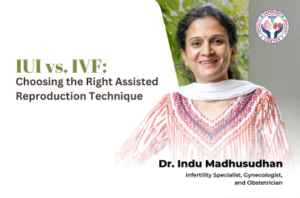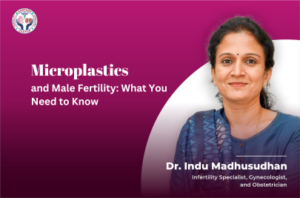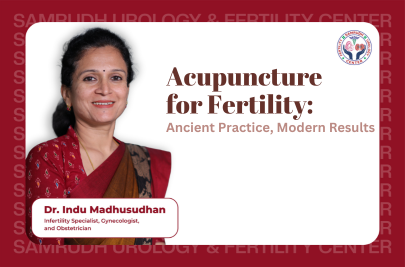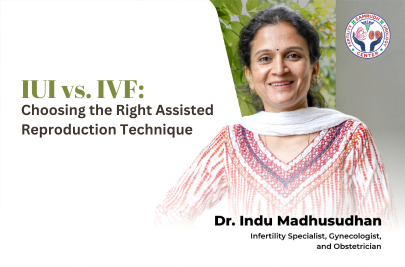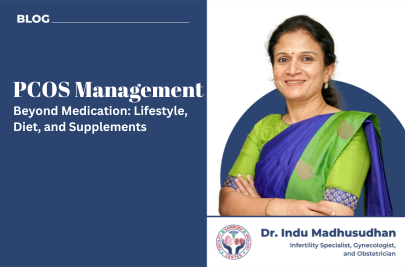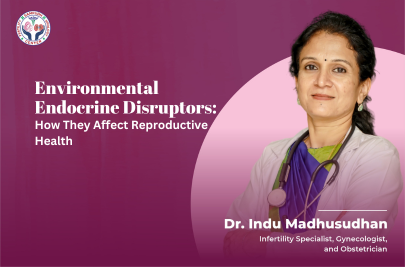Introduction
When it comes to assisted reproduction, two of the most common techniques are Intrauterine Insemination (IUI) and In Vitro Fertilization (IVF). Both treatments are designed to help couples struggling with infertility, but they differ significantly in terms of procedure, cost, and effectiveness. Choosing the right technique can be challenging, and it’s essential to understand the differences between IUI and IVF to make an informed decision. At Samrudh Fertility and Urology Centre, Bangalore, Dr. Indu Madhusudan and her team are dedicated to guiding couples through the fertility treatment options available, ensuring personalized care and the best chances for success.
Understanding IUI (Intrauterine Insemination)
IUI is a less invasive fertility treatment in which sperm is directly inserted into a woman’s uterus during her ovulation window, increasing the chances of sperm reaching the egg for fertilization. IUI is typically recommended for couples with mild infertility issues, such as unexplained infertility, cervical mucus problems, or low sperm count.
The IUI Procedure
- Ovarian Stimulation (Optional): In some cases, fertility medications are used to stimulate the ovaries and increase the chances of ovulation.
- Sperm Collection: A sperm sample is collected from the male partner or a sperm donor. The sperm is then processed and concentrated to select the healthiest sperm.
- Insemination: The prepared sperm is inserted directly into the uterus using a thin catheter, typically around the time of ovulation, ensuring that the sperm is placed near the egg.
IUI is a relatively simple and quick procedure, usually performed in a doctor’s office, and requires minimal downtime. It is often used in cases of mild male infertility, ovulatory disorders, and unexplained infertility.
When Is IUI Recommended?
- Unexplained Infertility: When there is no clear cause for infertility, IUI can be a viable option.
- Mild Male Factor Infertility: IUI can help when the sperm count or motility is slightly lower than normal.
- Cervical Factor Infertility: If the cervical mucus is preventing sperm from reaching the uterus, IUI can bypass this barrier.
- Ovulation Disorders: For women with irregular ovulation, IUI can help increase the chances of conception.
Success Rates and Considerations
IUI success rates vary depending on factors like age, the cause of infertility, and the quality of the sperm. The overall success rate for IUI is typically around 10-20% per cycle, with the chances increasing with multiple cycles.
Understanding IVF (In Vitro Fertilization)
IVF is a more advanced and complex assisted reproduction technique that involves fertilizing an egg outside the body and then implanting the embryo into the uterus. IVF is typically recommended when other treatments, like IUI, have not been successful or when more severe fertility issues are present.
The IVF Procedure
- Ovarian Stimulation: The woman undergoes hormone treatment to stimulate the ovaries to produce multiple eggs. Regular monitoring through blood tests and ultrasounds ensures optimal egg development.
- Egg Retrieval: Once the eggs are mature, they are collected in a minor surgical procedure called egg retrieval, typically done under sedation.
- Sperm Collection and Fertilization: The male partner or sperm donor provides a sperm sample, and the healthiest sperm is selected for fertilization. In cases of male infertility, Intracytoplasmic Sperm Injection (ICSI) may be used, where a single sperm is injected directly into the egg.
- Embryo Culture: The fertilized eggs are cultured in the lab for several days, and embryos are monitored for growth and development.
- Embryo Transfer: Once healthy embryos are identified, one or more embryos are transferred into the woman’s uterus.
IVF is a more invasive procedure that offers a higher chance of success, particularly in cases of severe infertility. It’s also the only method that allows for genetic testing of embryos (PGD/PGS) before implantation, which can reduce the risk of inherited genetic disorders.
When Is IVF Recommended?
- Severe Male Factor Infertility: When sperm count, motility, or quality is extremely low, IVF with ICSI can help achieve fertilization.
- Blocked or Damaged Fallopian Tubes: IVF bypasses the fallopian tubes entirely, making it the best option for women with tubal issues.
- Endometriosis: Severe endometriosis can damage the ovaries and fallopian tubes, making IVF a more effective option.
- Ovulatory Dysfunction: Women with severe ovulatory issues, such as those with polycystic ovary syndrome (PCOS), may benefit from IVF.
- Repeated IUI Failures: If IUI has not been successful after several attempts, IVF may be the next step.
- Advanced Maternal Age: For women over the age of 35, IVF offers a higher chance of success, especially if egg quality is a concern.
Success Rates and Considerations
IVF has a higher success rate than IUI, with the average success rate being around 40-45% per cycle for women under 35. Success rates tend to decrease with age and can be influenced by factors such as the quality of the eggs, sperm, and overall health of the woman.
IUI vs. IVF: Key Differences
Feature | IUI | IVF |
Procedure | Sperm is placed directly into the uterus. | Eggs are fertilized outside the body, and embryos are implanted. |
Invasiveness | Minimally invasive | More invasive and complex procedure. |
Cost | Generally less expensive | More expensive due to complexity. |
Success Rate | 10-20% per cycle | 40-45% per cycle (under 35 years) |
Indications | Mild infertility, ovulation disorders, cervical factor infertility. | Severe infertility issues, blocked tubes, advanced maternal age. |
Time Frame | Can be done within one cycle | Longer process involving multiple stages. |
Egg Quality | Depends on natural ovulation. | Can work with frozen eggs or embryos. |
Choosing the Right Treatment
Choosing between IUI and IVF depends on various factors, including the underlying cause of infertility, the woman’s age, the couple’s budget, and the number of previous attempts at conception. If infertility issues are mild and the woman has a healthy uterus, IUI may be the first option. However, if infertility is more severe or IUI has failed multiple times, IVF may be the more effective choice.
It’s essential to discuss both options with a fertility expert who can provide personalized recommendations based on your specific situation. At Samrudh Fertility and Urology Centre, Dr. Indu Madhusudan offers expert guidance, helping couples navigate the complex fertility treatment landscape and make the best decision for their reproductive health.
Conclusion
Both IUI and IVF have their place in fertility treatment, and the right choice depends on the individual’s medical circumstances and personal goals. IUI is a great first-line treatment for couples with mild infertility, while IVF offers a higher success rate and is more suitable for cases of severe infertility or when IUI has not worked. Understanding these options and consulting with a fertility expert is crucial in making the right decision for your family-building journey.


